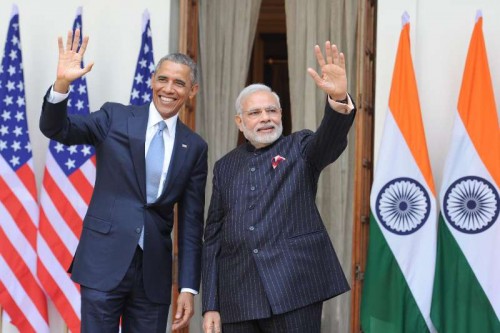
By Arun Kumar
Beyond the nuclear deal breakthrough, President Barack Obama’s trip to India showed that the new Indian government with a strategic global outlook was willing to fulfill its commitments, according to a US think tank.
Questions have been raised over whether the workaround for civilian nuclear trade is the breakthrough both sides claim, noted Richard M. Rossow, Wadhwani Chair in US-India Policy Studies Centre for Strategic and International Studies (CSIS).
“The importance of civilian nuclear trade is not in question,” he wrote in a commentary noting “India is energy starved, and a heavier reliance on nuclear power could reduce the nation’s trade deficit while reducing emissions.”
But for the US government it is even more important to know “it is dealing with a government in Delhi that is both strategic in its global outlook and willing to fulfill its commitments,” Rossow wrote.
“Measured by these two variables, the visit was quite remarkable,” he added.
“The fact that India made real efforts to find a workaround solution to enable nuclear trade gives fresh confidence that we can make progress on other fronts.”
Similarly, the announcement about finally moving forward “with four codevelopment projects under the Defense Technology and Trade Initiative (DTTI) further underscores the Modi government’s willingness to fast-track projects that could not move earlier,” Rossow wrote.
Paired with the Joint Strategic Vision for the Asia-Pacific and Indian Ocean Region (JSV), he said, India-US “strategic relations have moved beyond unlocking strategic trade.”
Suggesting that the next two years are “obviously critical,” Rossow said the governments will have to develop the “roadmap” mentioned in the JSV in order “to make sure the next US president understands that the relationship with India is worth a personal investment.”
Both the US and India will constantly find themselves pulled toward the crises of the day, he wrote.
“But taking the time to invest in a stronger partnership will also reinforce our shared efforts to combat such crises when they arise.” The Delhi agreements “carry importance beyond their specific meaning,” Rossow wrote.
“The concerns held by the US side that India may not be interested, willing, or able to carry through on specific commitments that would underpin our deepening partnership have been alleviated-a point that carries deep significance on its own,” he wrote.